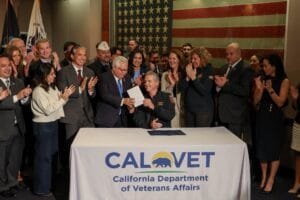Iraqi parliament, government clash over 2021 budget

The Iraqi parliament it set to discuss this week the 2021 state budget, amid sharp differences between the government and a number of political and parliamentary blocs.
The government, led by Prime Minister Mustafa al-Kadhimi, sent the “austerity” budget to the parliament last week with spending and employment figures totaling $130 billion and a deficit exceeding 60 percent of the expected revenues.

Oil, which constitutes more than 95 percent of the country’s imports, was set at $42 per barrel.
As soon as a number of political coalitions rejected the budget based on a reform document dubbed the “white paper,” Kadhimi announced that it was reviewed and approved by the blocs’ top leaders.
The budget saw major salary cuts and additional taxes on oil and various commodities amid the increase in the exchange rate of the dinar and the consequent inflation.
This stirred a debate between the government and the blocs opposing Kadhimi, who believe the prime minister wants to exploit the results of the October 2019 uprising, while his supporters, along with a wide range of political parties, see his appointment as the outcome of the revolution.
Iraqis bloc MP Hussein Arab believes the budget will not be approved quickly, given the parliament’s objection to a number of its items.
Arab told Asharq al-Awsat that the parliament will suggest amendments, especially to the expenditures, the Iraqi dinar rate, and borrowing terms.
He explained that political parties are yet to agree on the nature of the amendments or their mechanisms.
Asked by Asharq Al-Awsat about the relationship between the federal government and the Kurdistan Regional Government (KRG), Arab said that the agreements between the two sides are mere formalities, indicating that the political blocs informed the Kurdistan government that it should provide information on oil and non-oil imports to the federal government.
Differences between Baghdad and Kurdish delegates persist over Kurdish oil exports and the region’s debts.
Independent Kurdish MP Rebwar Karim confirmed that a new parliamentary bloc of 15 Kurdish deputies has different views on salaries, oil, and the overall relationship between Baghdad and Erbil.
Karim told Asharq Al-Awsat that the salaries of the Kurdistan region’s employees should not be affected by the disagreements.
He indicated that the bloc is demanding the salaries be paid directly from Baghdad to the region’s civil servants, like the rest of the Iraqi state employees.
Karim stressed that people should not pay the price of political differences between the two governments.
However, KRG spokesman Jutiar Adel asserted that Kurdistan is exerting all efforts to resolve the crises, develop the reform process, and serve its citizens.
He pointed out that Baghdad should include the region’s budget in the Federal Budget Law.














